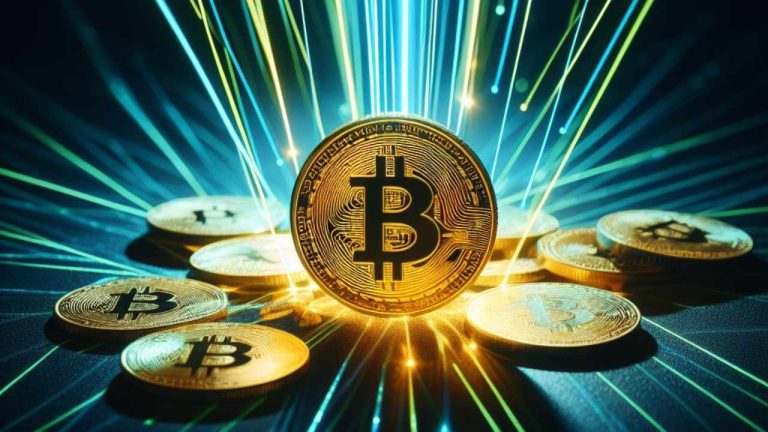
Financial services giant Fidelity has addressed nine common Bitcoin criticisms and misconceptions, emphasizing that some of them are “either unfounded or unlikely to be a serious concern.” They include volatility, suitability as a payment method, environmental impact, competition, lack of backing, potential code bugs, regulatory hurdles, waning public interest, and unknown unknowns.
Fidelity Responds to 9 Bitcoin Criticisms
Fidelity Digital Assets, a subsidiary of financial services giant Fidelity Investments, published a research study last week titled “Revisiting Persistent Bitcoin Criticisms.”
In its 13-page document, Fidelity addressed nine Bitcoin criticisms and misconceptions, including updates on five that it previously addressed in November 2020. The firm revealed that the criticisms were sourced from its “regular conversations with institutional investors and observation of public commentary on Bitcoin,” adding that the responses outlined in the study “may be adapted to address other common misconceptions.”
Noting that some common Bitcoin criticisms and misconceptions addressed in its new study are legitimate while some have been debunked, the financial services giant stated:
More than three years later, bitcoin not only remains the largest digital asset by market capitalization, but continues to grow as a monetary network.
The first criticism of Bitcoin is that it is “too volatile to be a store of value.” Fidelity explained: “Bitcoin’s volatility is a trade-off for perfect supply inelasticity and an intervention-free market. However, with greater adoption of bitcoin and bitcoin-related derivatives and investment products, bitcoin’s volatility will continue to decrease, as history has shown.”
The second criticism is that “bitcoin has failed as a means of payment.” Fidelity pointed out: “Contrary to what some people think, data from Coin Metrics shows significant transaction volume on the Bitcoin network with more than $3.1 trillion in transactions settled, which was just under 40% of what Mastercard processed in the last year. This presents a lower bound for bitcoin’s use as a means of payment.”
The third criticism states that “Bitcoin is wasteful and/or bad for the environment.” Fidelity responded: “Most bitcoin mining is powered by renewable energy or energy that would otherwise be wasted. Additionally, the energy the Bitcoin network does consume is arguably a valid and important use of resources.”
The fourth criticism is that “Bitcoin will be replaced by a competitor.” Fidelity emphasized, “Bitcoin makes trade-offs for core properties that the market deems valuable,” elaborating:
While Bitcoin’s software is open source and may be forked and ‘improved’ upon, its community of stakeholders (users, miners, validators, developers, service providers) and network effects cannot be so easily replicated.
The fifth criticism states that “Bitcoin is not backed by anything.” However, Fidelity argued: “Bitcoin is not backed by cash flows, industrial utility, or decree. Bitcoin is backed by code brought to life by its stakeholders’ social contract.”
The next four criticisms and misconceptions were not addressed by the firm in 2020. Fidelity cautioned: “We believe that there are a few legitimate concerns that have some, even if small, probability of occurring and, therefore, investors should be aware.”
The next criticism outlined in Fidelity Digital Assets’ study is that “Bitcoin’s code could render it worthless.” Fidelity stressed: “While it cannot be ruled out that another bug or unintended consequence of an upgrade may happen, we do think the probability of such an event is much lower as the network has become more resilient, and more developers continue to work on it over time.”
The seventh criticism suggests that “Regulations will slow bitcoin adoption.” While acknowledging that unclear regulations could hinder BTC adoption, Fidelity stated:
Recently, digital asset regulation discussion has increased with policymakers, and we are encouraged to see that digital asset regulation is of increased focus and importance for government representatives.
The eighth criticism about Bitcoin is that “People could lose interest.” However, Fidelity noted: “On-chain data shows little evidence of interest in bitcoin waning. As prices have greatly risen since Bitcoin’s inception, the number of wallets continuing to accumulate and hold a balance has also increased.”
The ninth criticism raises concerns about Bitcoin’s “unknown unknowns.” Besides the “known unknowns,” such as “a bug in Bitcoin’s code, or Bitcoin’s anonymous creator(s) Satoshi suddenly reappearing and selling all their bitcoin,” the financial services giant warned about “unknown unknowns, or possible risks that we do not even know of or have not even imagined yet.” The firm advised: “Investors of any asset should be aware of these and humbly accept that not all risks can be known, let alone quantified and, therefore, should position their investment and portfolio accordingly.”
Fidelity concluded: “Bitcoin is a unique digital asset for an increasingly digital world that requires digging deeper than the surface level to understand its core properties and trade-offs.” You can read the firm’s full responses to the nine Bitcoin criticisms and misconceptions here.
What do you think about Fidelity’s responses to the nine criticisms about Bitcoin? Let us know in the comments section below.
Comments
Post a Comment